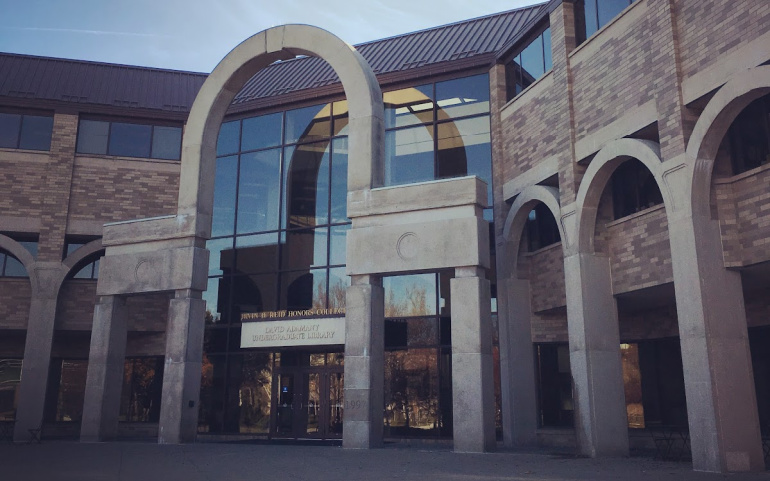
A team of Wayne State University professors, students and members of the facility management team are collaborating to improve the energy efficiency of the heating, ventilation and air conditioning (HVAC) system of commercial buildings as part of the DTE E-Challenge 5.
The project, “Artificial Intelligence-enabled HVAC Control,” uses artificial intelligence to learn occupants’ behavior, predict their activity and patterns in a building, and adjust the HVAC usage accordingly.
The team’s proposal has advanced to the implementation phase of the DTE E-Challenge 5. DTE and The Engineering Society of Detroit have awarded the team $100,000 toward the implementation of the project. Additional scholarships are provided to the students working on the project of $4,000 per semester for graduate students and $1,000 per semester for undergraduates. In addition, the College of Engineering is providing $100,000 for the project.
“The idea behind the DTE E-Challenge is to develop technologies that improve energy efficiency and reduce energy waste in commercial and industrial buildings,” said Masoud Nazari, assistant professor of electrical and computer engineering and the principal investigator for the project.
“The demonstration site will eventually be one of the buildings on campus. The idea is that we will use artificial intelligence to proactively control the heating and cooling and ventilation system in the building in order to improve energy efficiency, while ensuring that occupants have a comfortable environment.”
The project will take place over approximately 18 months. Some of the students are currently collecting information about the building — which is scheduled to be the David Adamany Undergraduate Library — and others are working on the computer science aspects of the project.
“The students are doing a great job,” Nazari said. “First the students were working on building analysis. They had a tour and went to the building, they visited different areas and did inventory of the building. They did that to understand what technology exists there and what can be added to make it better based on the proposed technology.
“The students in computer science have worked on developing algorithms that can be used to predict occupancy and activity based on the data we collect from the sensors like the Internet of Things sensors. They did the analysis on energy consumption of the building and came up with the estimation of how much savings we will expect after the implementation of this technology.”
Athira Kottilappilly Babu, an electrical engineering graduate student at Wayne State, said she is excited to work on the project and grateful for the opportunity, both academically and for what it could mean for the future.
“DTE E-Challenge is an amazing platform that focuses on leveraging innovative mindsets to provide creative energy conservation solutions that help reduce greenhouse gases and eventually contribute toward a healthy and sustainable world,” Babu said. “Projects like this are not only important to provide a platform to explore students’ career interests, but also to identify young talent to support technology innovations and breakthroughs for a future sustainable world.”
Senior electrical engineering major Zachary Roberts said he’s enjoyed being able to learn things he wouldn’t necessarily learn in the classroom.
“Projects like this are important because they give students a chance to branch out and do something they wouldn’t normally do in their major,” Roberts said. “Also, in doing this project, it can help provide insight to further technology and help DTE lower their prices, which, in the end, will help the customers.”
Associate Vice President of Facilities Planning and Management Robert Davenport, Senior Director of Facilities Operations Steven Pecic and Director of Utilities and Energy Management Paul Bernard are all part of the team. Associate Professor of Computer Science Dongxiao Zhu, Adjunct Professor of Engineering Dick Green, and Professor of Electrical and Computer Engineering Caisheng Wang are also working on the project.
Nazari hopes the work of the entire team will show energy savings and prove that the technology could be implemented elsewhere in the future.
“The long-term goal is that this technology will become scalable and DTE has a vision to submit the viable Energy Conservation Measures (ECM) to the Michigan Public Service Commission to become commercialized ECMs.” Nazari said. “The proposed technology can be expanded to different buildings depending on how successful the technology is and if we can achieve the goals.”
